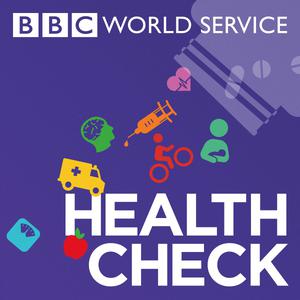
Health Check
BBC
Health issues and medical breakthroughs from around the world.
- 26 minutes 28 secondsWhat’s happening with girls’ mental health?
There's been a lot of coverage in the media around the world about the mental health difficulties facing boys, but looking at figures for mental health problems in children and teens, there's clearly something going on with girls too. For some years, research has shown more girls are experiencing problems than boys, with a troubling spike in difficulties showing up in the late teens.
On today's programme, Claudia Hammond explores the issue with a variety of guests. She visits King's College London's (KCL) Institute of Psychiatry, Psychology and Neuroscience to speak to Gemma Knowles, a lecturer in epidemiology and youth mental health; Craig Morgan, professor of social epidemiology and co-director of ESRC Centre for Society and Mental Health; and Valeria Mondelli, a clinical professor of psychoneuroimmunology - about their work with young people, trying to uncover the deeper causes and to find new solutions.
She also hears from some of the young people involved in a major study into mental health, conducted by the team at KCL and spanning nearly a decade.
Claudia is joined by Dr Linda Blair, a clinical psychologist, who uses her own professional experiences to discuss the trends and challenges of youth mental health.
Presenter: Claudia Hammond Producer: Dan Welsh
1 May 2024, 8:00 pm - 26 minutes 28 secondsIs turbulence injuring more and more flyers?
After a number of incidents around the world so far this year that have left dozens of flyers needing hospital treatment, we look at how a rise in air turbulence because of global warming is leading to more and more injuries to passengers.
Professor Paul Williams from the University of Reading in the UK tells us why turbulence is so hard to plan for, how new technology might be able to help solve the problem, and how despite an increase in incidents it’s still incredibly rare to experience extreme turbulence./
Claudia Hammond is also joined by Monica Lakhanpaul, Professor of Integrated Community Child Health at University College London, to look at how a shortage of HPV vaccines is leading to millions of girls across Africa missing out on receiving the shots.
Monica also tells us about her new research on the barriers children with epilepsy are facing being able to exercise.
We also explore what it’s like for people that don’t have an inner monologue and can’t imagine sounds – a phenomenon known as anauralia.
Presenter: Claudia Hammond Producer: Dan Welsh
24 April 2024, 8:00 pm - 26 minutes 29 secondsNigeria rolls out world’s first 5-in-1 meningitis vaccine
After a 50% jump in meningitis cases reported across Africa last year, Nigeria is becoming the first country to roll out a new 5-in-1 meningitis vaccine. The Men5CV vaccine protects people against five strains of the meningococcus bacteria.
Claudia Hammond is joined by New Scientist medical journalist Clare Wilson to discuss how it’s hoped the treatment will help significantly reduce cases of the disease.
We also head to Brazil to hear how the country is dealing with long Covid, four years after the pandemic.
Clare also tells Claudia about the new cancer treatment testing different drugs on thousands of miniature tumours to see which of them works best. The team behind the research at Florida International University in Miami say they hope it could eventually be used routinely for everyone with cancer.
We also get a new update from British journalist Mike Powell, as we follow his journey after receiving a kidney transplant.
And Claudia and Clare look at how patches of skin grafted onto people receiving lung transplants are being used as a way of spotting organ rejection in a new trial.
Image Credit: Martin Harvey
Presenter: Claudia Hammond Producer: Dan Welsh
17 April 2024, 8:00 pm - 26 minutes 29 secondsHow we hope
Claudia Hammond presents a special edition of Health Check from the Northern Ireland Science Festival, where she’s joined by a panel of experts to discuss the psychology of hope.
With a live audience in Belfast’s Metropolitan Arts Centre, Claudia speaks to Dr Karen Kirby, senior lecturer in psychology at the University of Ulster; Dr Kevin Mitchell, associate professor of genetics and neuroscience at Trinity College Dublin; and author Sinéad Moriarty.
Topics include the role of hope in medical scenarios, if we can learn to be hopeful, and how we can hold onto hope in the modern world. We also hear questions from our audience, including whether or not we should all just lower our expectations.
Presenter: Claudia Hammond Producer: Dan Welsh
10 April 2024, 8:00 pm - 26 minutes 28 secondsPuerto Rico declares dengue fever emergency
As the recent surge in cases of dengue fever continues across Latin America and the Caribbean, Puerto Rico declares a public health emergency.
Claudia Hammond is joined by Professor of Global Health and Epidemiology at Boston University, Matt Fox, to hear how warmer temperatures have lead to outbreaks of the mosquito-borne disease around the world, with millions of cases reported so far this year.
We speak to the artist Jason Wilsher-Mills at his latest exhibition inspired by his childhood experiences of disability, and hear the role it played in his journey into the arts.
Claudia and Matt discuss the spread of mpox in the Democratic Republic of the Congo, with cases reported in all but 3 of the country’s 26 provinces.
We hear from Uganda about the project hoping to help provide essential equipment for safe anaesthesia in children’s surgery.
And the study that says just two nights of broken sleep are enough to make us feel years older.
Presenter: Claudia Hammond Producer: Dan Welsh
3 April 2024, 8:00 pm - 27 minutes 26 secondsPig kidney transplanted into patient
The latest on the first procedure to transplant a kidney from a pig into a living patient. Claudia Hammond is joined in the studio by Dr Graham Easton to hear how the organ was genetically modified to reduce the risk of it being rejected following a four hour surgery in Massachusetts in the US.
We also hear about the data that’s linked working outdoors in sunlight to non-melanoma skin cancer. The report from the World Health Organisation and the International Labour Organization says one in three deaths from this type of skin cancer is caused by ultraviolet radiation from outdoor work.
Claudia and Graham also discuss new research from India that’s found working in extreme heat can double the risk of stillbirth and miscarriage for pregnant women. It’s also calling for more advice for working pregnant women around the world.
We go to Cameroon to hear about the medicines being sold to passengers on buses, despite there being no evidence they actually work.
And we hear how some reporting over claims that intermittent fasting is linked to an increased risk of heart-related death may have jumped the gun.
Presenter: Claudia Hammond Producer: Dan Welsh
(Photo: Operating theatre. Credit: Getty Images)
27 March 2024, 9:00 pm - 27 minutes 19 secondsShould we stop talking about long Covid?
Most people with Covid-19 make a full recovery within 12 weeks, but some patients have experienced ongoing symptoms for much longer. This has become known as ‘long Covid’. However, new research suggests that the rates of ongoing symptoms and functional impairment after Covid are indistinguishable from other post-viral illnesses, and that long Covid may have appeared to be a distinct and severe illness because of high volumes of Covid-19 cases during the pandemic. Presenter Claudia Hammond is joined in the studio by BBC Health reporter Philippa Roxby to discuss the findings. If long Covid is not unique, could this new spotlight encourage research that would help sufferers of other post-viral conditions?
The use of heart pacemakers have become a standard procedure in many countries. Pacemakers are small electrical devices implanted in the chest that send electrical pulses to the heart to keep it beating regularly and not too slowly. The devices can be lifesaving for some people. But devices can malfunction, there can be problems with leads and the batteries in them don’t last forever. Over half of all pacemaker patients live long enough to require a battery replacement operation, which carries a risk of serious complications including life-threatening infection. This can have big cost implications for health systems and devastating consequences for patients. Reporter Hannah Fisher attends one of these operations to find out more.
An initiative to make the right to abortion part of the EU Charter of Fundamental Rights has been introduced to the European Parliament. This comes on the heels of France making abortion a constitutional right earlier this month, in stark contrast to the removal of abortion as a constitutional right in the USA in 2022. We assess the initiative’s chances of success and discuss the ripple effect of US politics on abortion rights across the rest of the world.
Amputees who use prosthetic limbs have to get used to the fact that they do not experience the sensations that they were previously used to. But now researchers in Italy and Switzerland have developed a temperature-sensitive robotic hand that allows amputees to discriminate between objects of different temperatures and sense bodily contact with other humans. Solaiman Shokur of École Polytechnique Fédérale de Lausanne tells Claudia how it works.
And Philippa brings the story of Paul Alexander, a polio survivor who spent most of his life inside an iron lung. An iron lung is a metal cylinder enclosing the body up to the neck, with bellows to force the lungs to inflate and deflate. The device has been obsolete since the 1960s, but he continued to use his until he died recently. 72 years after Paul contracted polio, we look at how the disease has nearly been eradicated worldwide.
Presenter: Claudia Hammond Producer: Ben Motley and Margaret Sessa-Hawkins
(Photo: Man in bed. Credit: Catherine Falls Commercial/Getty Images)
20 March 2024, 9:00 pm - 26 minutes 27 secondsA promising new cancer treatment
The toxic mineral asbestos is still mined across the world, despite it’s much documented links to cancer. Now there are promising results from a new global study into one of the most aggressive types of cancer caused by exposure to asbestos.
Also on the programme, we receive an exciting update from Mike, who has gotten a long-awaited kidney transplant, and we discuss new treatment protocols for Hepatitis B and how they could better serve people in southern and eastern Africa.
13 March 2024, 9:00 pm - 26 minutes 28 secondsOne billion obese people
More than one billion people in the world are now living with obesity. The number of people who are underweight has also fallen according to a new global study, but this does not necessarily mean that people are better fed. In some countries insufficient food has been replaced by food that does not contain the nutrition that people need, with obesity now the most common form of malnutrition in many places. Claudia Hammond talks to study author Professor Majid Ezzati about the results and what can be done to halt the trend of increasing global obesity.
Research has shown that sleep deprivation can increase the risk of developing type 2 diabetes, while regularly eating fruit and vegetables can reduce the risk. Yet it wasn’t known whether a healthy diet could compensate for a lack of sleep. Now, researchers at Uppsala University in Sweden have discovered that people who eat healthily but sleep for less than six hours a day are still at higher risk of type 2 diabetes. GP Dr Ayan Panja joins Claudia in the studio to pick over the findings and talk about the importance of sleep to your health.
Ayan also brings news of a new study into screen time and language development in children. While this study found that screen time has a negative impact on children, previous studies have found that the right kind of television programme can be beneficial. Claudia and Ayan discuss the difficulties of finding answers to questions about the impact of screen time.
With the Oscars about to take place in Hollywood, we’ll be wondering what the best films are for learning about global health. Professor Madhukar Pai from McGill University in Canada uses movies in his teaching, and has even put together a list of over one hundred films that accurately portray health stories. He tells us what makes the perfect health movie.
And there’s more from British journalist Mike Powell as he prepares for his kidney transplant operation.
(Photo: Police physical trainer Javier Ramirez (C) works with police officers at a police unit in Mexico City, 11 December, 2019, where 1,000 Mexico City police officers have joined a program to lose weight. Credit: Rodrigo Arangua/AFP)
Featuring clips from:
"Chernobyl" Directed by Johan Renck, HBO/Sky UK
"Contagion" Directed by Steven Soderbergh, Participant Media/Imagenation Abu Dhabi/Double Feature Films
"How to Survive a Plague" Directed by David France, Public Square Films/Ninety Thousand Words
"Bending the Arc" Directed by Kief Davidson and Pedro Kos, Impact Partners
6 March 2024, 9:00 pm - 26 minutes 28 secondsJunior doctors strike in South Korea
More than 1,600 junior doctors have been on strike in South Korea in a dispute about working conditions and Government plans to add more medical school placements. BBC health reporter Smitha Mundasad joins Claudia Hammond to explain the latest.
Smitha also brings Claudia new research about the first ever prehistoric case of a child with genetic condition Edwards’ syndrome. And some innovative solutions to get blood to so called ‘blood deserts’; large rural areas where there is no access to blood transfusion.
Claudia and Smitha also hear how one American woman Lynn Cole’s fight with serious blood infection helped scientists understand more about phage therapy. Lynn died in 2022, but Claudia speaks to her daughter Mya.
Health Check also continues to follow British journalist Mike Powell as he prepares for a kidney transplant operation. This week he is in conversation with Justin Pham in Los Angeles, who also has kidney failure and has been on dialysis since last year.
Presenter: Claudia Hammond Producer: Clare Salisbury
28 February 2024, 9:00 pm - 26 minutes 28 secondsGlobal Trade v Health Equality
Research shows that large numbers of Covid deaths could have been prevented if people in low and middle income countries had better access to vaccines. But this week the World Trade Organisation said it could not reach a consensus on waiving intellectual property rights on Covid-19 tests and treatments for poorer countries. Claudia Hammond is joined by BBC Africa health correspondent Dorcas Wangira in Nairobi, to discuss the impact of vaccine inequity on her part of the world.
Dorcas also brings news of a new Ebola study showing that even people vaccinated once they were already infected with Ebola had a substantially lower risk of dying. It suggests that not only does the vaccine help prevent Ebola, it also improves the survival odds of people who have already contracted it.
Oral Rehydration Salts are a lifesaving and inexpensive treatment for diarrhoeal disease, a leading cause of death for children around the world. It is cheap, effective and has been recommended by the World Health Organization for decades - so why is it under-prescribed? That’s a question that researchers at the University of Southern California set out to answer by sending ‘mystery patients’ to thousands of healthcare providers in India. Prof Neeraj Sood tells Claudia what they discovered.
And, a new study suggests that if the fourth digit on the hand of a professional footballer is longer than their second digit, they can metabolise oxygen more efficiently. This comes on the back of previous research about how differences in finger length can be a marker of heart attack and severity of Covid-19. Can you really make predictions about someone’s health based on the way their hand looks?
21 February 2024, 9:00 pm - More Episodes? Get the App
Your feedback is valuable to us. Should you encounter any bugs, glitches, lack of functionality or other problems, please email us on [email protected] or join Moon.FM Telegram Group where you can talk directly to the dev team who are happy to answer any queries.
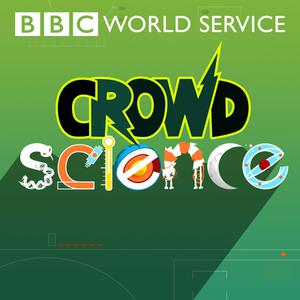 CrowdScience
CrowdScience
 5 Live Science Podcast
5 Live Science Podcast
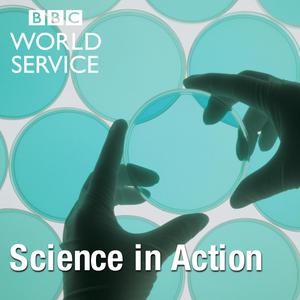 Science In Action
Science In Action
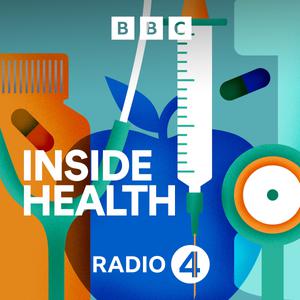 Inside Health
Inside Health
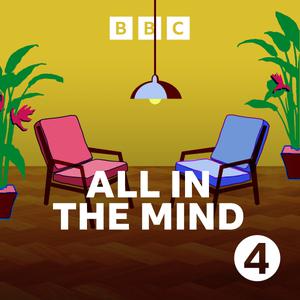 All in the Mind
All in the Mind
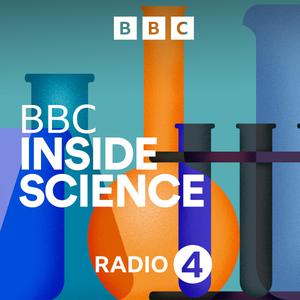 BBC Inside Science
BBC Inside Science